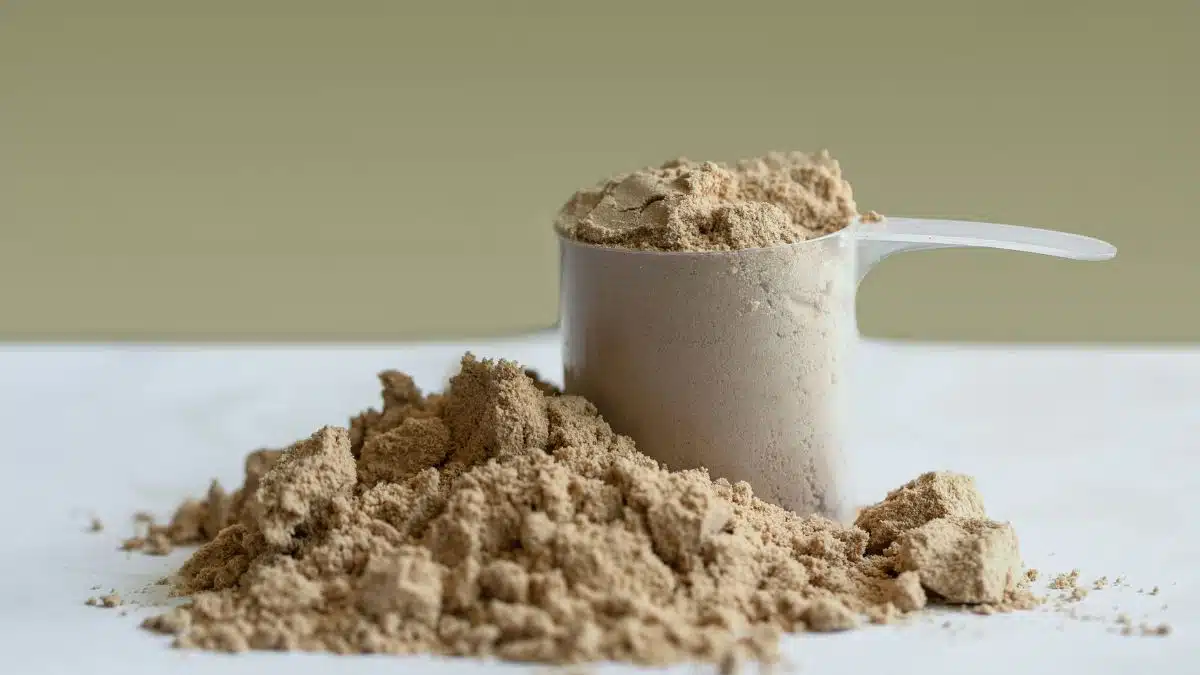Protein is a cornerstone of a runner’s nutrition plan. It supports muscle recovery, enhances endurance, and prevents injuries. For runners who often struggle to meet their dietary protein needs due to busy schedules or increased physical demands, protein powders are a convenient solution. In this comprehensive guide, we’ll explore the role of protein, how runners can incorporate protein powders effectively, and the best options tailored for their needs.

Why Protein Matters for Runners
Protein is a vital nutrient for anyone, but it holds special importance for runners because of the unique demands running places on the body. Here’s why:
- Muscle Repair and Growth
After every run, your muscles experience wear and tear. Protein helps repair this damage and fosters muscle growth, which is essential for better endurance. - Energy and Stamina
Protein helps balance blood sugar levels, ensuring that you maintain steady energy throughout your run. - Injury Prevention
Stronger muscles and tissues, thanks to sufficient protein intake, reduce the risk of common running injuries such as strains or sprains.
Runners’ Protein Requirements
The amount of protein you need depends on your level of activity and fitness goals:
- Casual runners: 0.8–1.2 grams per kilogram of body weight.
- Endurance runners: 1.2–1.6 grams per kilogram.
- Strength and speed runners: 1.6–2.0 grams per kilogram.
For example, a 70kg endurance runner would require 84–112 grams of protein daily. Dividing this intake across meals and snacks, including protein powder, ensures proper recovery and sustained energy.
High Protein Foods for Runners
While protein powders are useful, runners should first focus on whole, nutrient-dense protein sources:
- Animal-Based Foods: Eggs, chicken breast, fish, lean beef, and dairy products like Greek yogurt.
- Plant-Based Sources: Lentils, tofu, tempeh, quinoa, chickpeas, and nuts.
Pairing these foods with protein powder can fill any dietary gaps, especially during busy days.

What are Protein Powders?
Protein powders are dietary supplements made from various protein sources, including:
- Whey Protein: Derived from milk, this is the fastest-absorbing protein.
- Casein Protein: Also milk-based but digested slowly, making it ideal for nighttime recovery.
- Plant-Based Protein: Pea, rice, and hemp proteins are great for vegans and those with lactose intolerance.
Each type has unique benefits, and the choice depends on individual dietary needs and preferences.
Pros and Cons of Protein Powders
Pros:
- Convenience: Easy to prepare, making them ideal for post-run recovery.
- High Nutritional Value: Rich in essential amino acids, often fortified with vitamins and minerals.
- Variety: Available in numerous flavors and types to suit all dietary preferences.
Cons:
- Cost: High-quality protein powders can be expensive.
- Additives: Some powders contain artificial sweeteners or fillers that might not suit everyone.
- Overuse: Relying too heavily on protein powder can lead to imbalanced nutrition.
How to Choose the Best Protein Powder for Runners
Choosing the right protein powder can significantly impact your health and performance. Keep these factors in mind:
- Protein Source
- Whey for fast recovery.
- Casein for sustained muscle repair.
- Plant-based proteins for vegan or allergen-free options.
- Ingredients
- Look for powders with minimal additives, artificial sweeteners, and fillers.
- Check for NSF-certified products if you’re an athlete needing extra assurance.
- Taste and Mixability
- A palatable flavor and good solubility ensure you’ll stick to using it regularly.
- Allergen Sensitivities
- Gluten-free, soy-free, and lactose-free options are available for those with dietary restrictions.
5 Dietitian-Approved Protein Powders for Runners
- Optimum Nutrition Gold Standard Whey
- High-quality whey protein with 24 grams of protein per serving.
- Garden of Life Raw Organic Protein
- A vegan option that is certified organic and includes probiotics.
- Vital Proteins Collagen Peptides
- Collagen-based powder that supports joint and tendon health.
- Klean Athlete Whey Protein Isolate
- Designed for athletes, it’s free from artificial additives.
- Vega Sport Premium Protein
- A plant-based protein powder with BCAAs to aid recovery.
How to Incorporate Protein Powders into Your Diet
Protein powders are versatile and easy to use. Here are some practical ways to include them in your daily routine:
- Post-Run Recovery Shakes
Mix protein powder with water or milk for quick absorption after a run. - Smoothies
Blend with fruits, leafy greens, and nut butter for a nutrient-packed snack. - Baked Goods
Use protein powder in pancake batter, muffins, or energy bars. - Breakfast Boost
Stir into oatmeal or yogurt for a protein-rich start to the day.
Additional Tips for Runners
Hydration Matters
Always pair protein consumption with adequate hydration, especially after intense runs.
Balance is Key
Protein powders are a supplement, not a substitute. Combine them with whole foods to maintain a balanced diet.
Final Thoughts
Protein powders can be a game-changer for runners, offering convenience and targeted nutrition to support recovery and endurance. However, they should complement, not replace, a diet rich in whole foods. By selecting the right protein powder and using it wisely, runners can enhance their performance while staying healthy.
FAQs
1. How much protein should runners consume daily?
Runners need 1.2–2.0 grams of protein per kilogram of body weight, depending on activity intensity.
2. Is plant-based protein effective for runners?
Yes, plant-based proteins like pea or rice protein are excellent for recovery and are suitable for vegans.
3. When should runners consume protein powder?
The best time is within 30–60 minutes post-run to aid muscle recovery.
4. Can protein powder replace meals?
No, protein powders should supplement meals, not replace whole, nutrient-dense foods.


